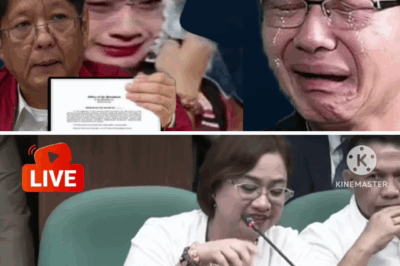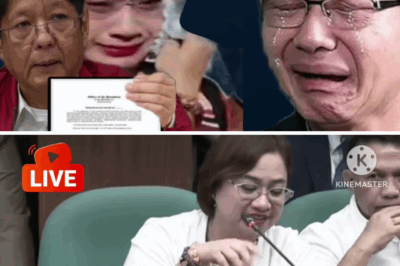Andi Eigenmann Defends Her Children from “Madungis” Remarks, Advocates Joyful, Messy Childhood
In today’s social media-driven world, celebrities often find themselves under intense scrutiny. Recently, actress-turned-island mom Andi Eigenmann became the center of online debate when some netizens described her children, Lilo and Koa, as “madungis” — a Filipino term meaning untidy or messy. Rather than remaining silent, Andi responded thoughtfully, turning what could have been a minor controversy into a larger conversation about parenting, childhood, and the value of authentic experiences.
A Wholesome Instagram Post
On September 4, 2025, Andi shared a short Instagram Reel capturing a candid moment of her two children walking to school. In the clip, Lilo and Koa carried backpacks and water bottles, smiling as they picked flowers along their path. Her caption read:
“Any path becomes an adventure when you choose to enjoy it!”
While many followers appreciated the glimpse into her children’s carefree, nature-filled lives, a few commenters focused on their slightly disheveled appearance, labeling them “madungis.”
Andi Speaks Out
Later that evening, Andi addressed the criticisms on her Instagram Story. Her statement reflected both frustration with superficial judgments and her strong parenting convictions:
“The amount of people who comment about my kids looking madungis are most likely the same type of people who have children stuck on their iPads all day, eating fast/junk food for all three mealtimes (and probably more), and then throw huge fits whenever things don’t go their way.”
“No parent is perfect, but I’d rather mine be messy from living fully, than clean from sitting still and being disconnected from it.”
Through these words, Andi clarified that messy appearances are not signs of neglect but proof that her children are actively exploring and engaging with the world around them.
The Philosophy Behind Messy Childhoods
Andi’s parenting approach is rooted in her lifestyle choice to raise her children on Siargao Island, far from the busy urban centers. Here, kids spend their days outdoors — swimming, exploring, and enjoying nature. In this environment, scraped knees and grass-stained clothes are badges of real-life experiences, not imperfections.
Her stance challenges the prevailing notion in social media culture that children must always appear polished and perfectly groomed. Instead, she emphasizes the importance of letting children live freely, make memories, and develop resilience through unstructured play.
Community Support and Nostalgia
Netizens quickly rallied in support of Andi, with many sharing nostalgic memories of their own childhoods in provincial towns. Comments reflected appreciation for her parenting values:
“Wow, remembering our old days in the province enjoying the simple things on the way to school. Your kids are lucky to experience that!”
“The experiences they’ll treasure will become part of their childhood memories. Growing up in the province is special because it’s full of joy.”
Some defended her children more directly:
“Let them be messy, sweaty, but super happy. That’s what childhood should be!”
These responses highlight a growing recognition of the value of outdoor play and authentic experiences over maintaining superficial appearances.
The Broader Implications
Andi’s response underscores the pressures that parents — especially celebrity parents — face in the digital age. Every post is subject to public judgment, and minor imperfections can trigger online criticism. By publicly defending her children, Andi challenges unrealistic expectations and advocates for parenting that prioritizes well-being, exploration, and joy over aesthetics.
Her message resonates beyond celebrity circles: it reminds all parents that allowing children to engage fully with their environment fosters creativity, resilience, and meaningful memories — qualities that cannot be captured in perfectly staged photos.
Conclusion
The controversy over Andi Eigenmann’s children being called “madungis” reflects a larger conversation about parenting in a perfection-driven culture. Andi’s unapologetic defense emphasizes that childhood is meant to be lived, not sanitized for social media.
Her philosophy champions messy, joyful, and adventurous childhoods. Lilo and Koa may return home with dirty clothes and scrapes, but they also return with stories, laughter, and experiences that will last a lifetime. For Andi, these memories are far more valuable than the fleeting approval of strangers online.
Through this incident, Andi Eigenmann not only defended her children but also shared a universal reminder: living fully, even messily, is far richer than living perfectly.
News
💥Vico Sotto SLAMS Discayas! 28 hidden luxury cars exposed, lies unraveled, Senate probes corruption—nation in shock over scandalous cover-up!💥
Vico Sotto Exposes Discaya Family Over Hidden Luxury Cars Pasig City Mayor Vico Sotto has publicly criticized contractor couple Sarah…
💥Vico Sotto EXPOSES Discayas’ hidden luxury cars! Lies, excuses, and scandal erupt—28 vehicles vanished before Bureau of Customs raid!💥
Vico Sotto Exposes Discaya’s Lies Over Hidden Luxury Cars In a recent turn of events, Pasig City Mayor Vico Sotto…
🔴 Julia Barretto Breaks Silence on Breakup with Gerald Anderson — Alleged third-party involvement sparks widespread speculation, while Gerald remains silent. Fans are eager for the full story.
Julia Barretto Breaks Silence on Breakup with Gerald Anderson: Third-Party Speculation Sparks Buzz In a revelation that has captivated fans…
🔴 Julia Barretto reveals breakup truth with Gerald Anderson—third-party rumors spark frenzy, fans demand answers, Gerald stays silent! 🔥
Julia Barretto Breaks Silence on Breakup with Gerald Anderson: Third-Party Allegations Surface In a recent revelation that has sent shockwaves…
Senators Escudero and Villanueva sentenced to life amid ghost project scandal—Philippines reels as corruption, betrayal, and political intrigue unfold.
Breaking: Senators Escudero and Villanueva Sentenced to Life Imprisonment in Massive Corruption Scandal In a stunning verdict that has sent…
Senators Escudero and Villanueva sentenced to life over ghost projects—shocking scandal rocks the Philippines, leaving nation in disbelief.
Breaking News: Senators Escudero and Villanueva Sentenced to Life Imprisonment Amidst Ghost Project Scandal In a shocking turn of events,…
End of content
No more pages to load












